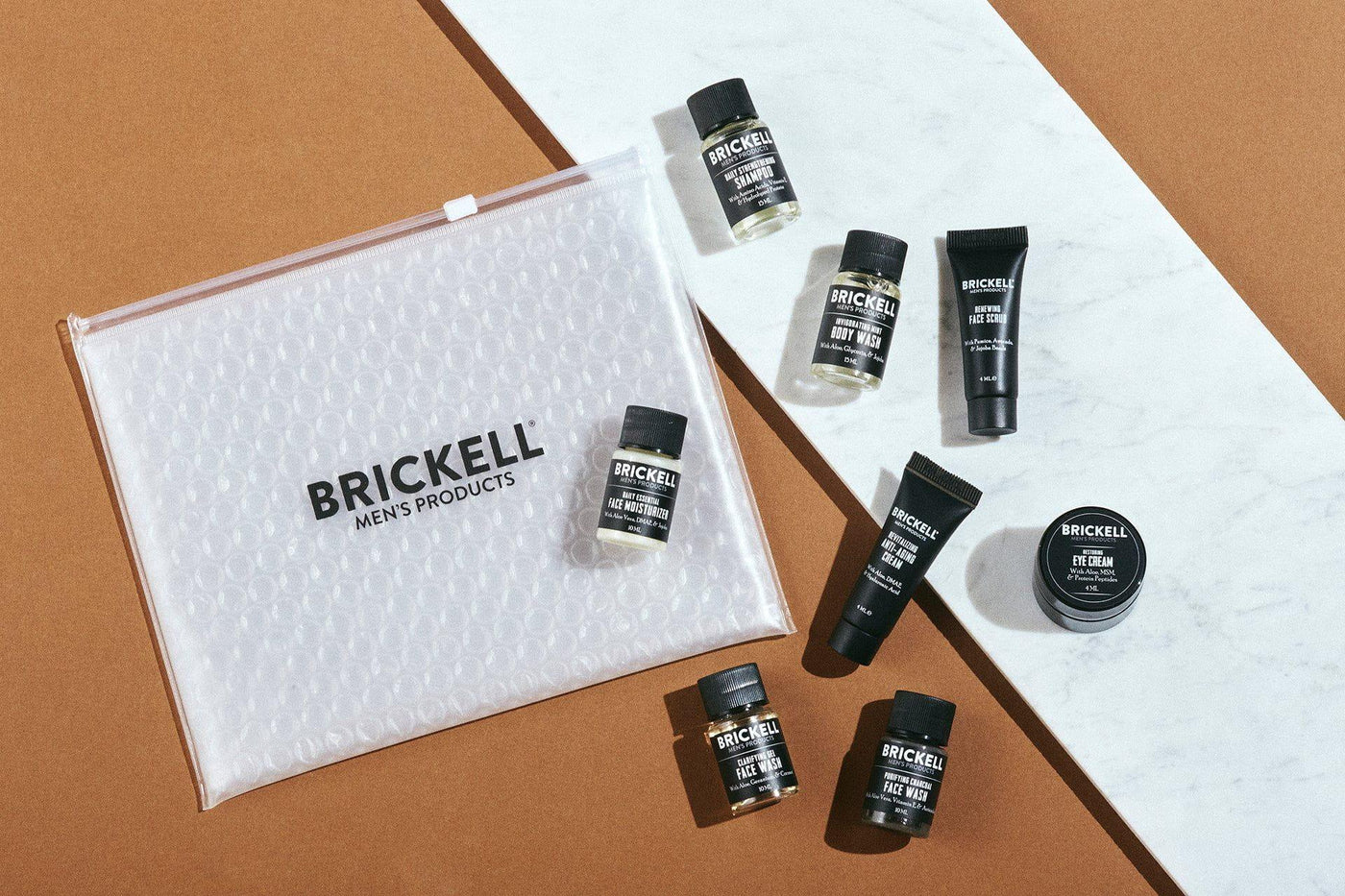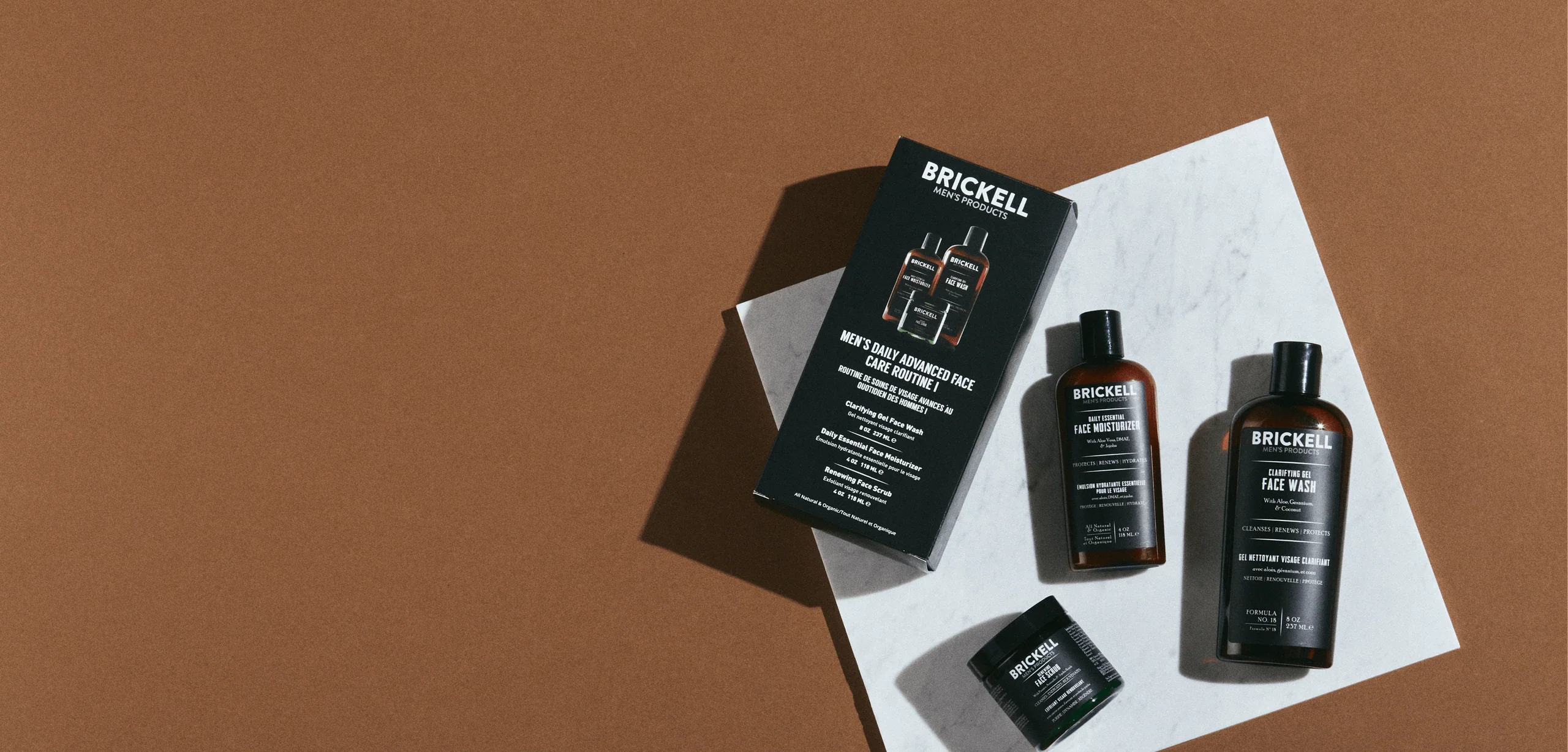The Grooming Manual
What Are the Best Men’s Face Wash Ingredients?

Washing your face is simple. Lather up some soap, wash, rinse, done. Right?
The process itself may be simple, but the chemistry that goes into manufacturing many face washes is anything but. Take a look at some of the labels on the products at your local store. The sheer number - and unpronouncability - of ingredients can be overwhelming and confusing.
Which are the best men’s face wash ingredients? Which should you avoid? Should your skin type affect your choice?
Best Men’s Face Wash Ingredients
In general, look for a face wash with a simple formula. That will usually be best if you have sensitive skin that is often irritated by harsh cleansers.
Natural Oils
These hydrate and nourish your skin while also offering cleansing benefits. Some common examples are jojoba oil, coconut oil, and olive oil.
Coconut-Based Cleansers
Many face washes contain harsh soaps and detergents. You want to find a face wash for men with gentler ingredients - like our Clarifying Gel Face Wash. It's made with sodium laureth sulfate (not lauryl), a coconut-based surfactant that removes dirt and oil without over-drying or irritating your skin like most sulfates.
Activated Charcoal
Activated charcoal is a gentle cleanser that works best for men with dry or sensitive skin. It attaches to dirt and bacteria, then washes them away. It’s easy on your skin too - so no concern about it leaving your face irritated or dried out. You'll find it in our Purifying Charcoal Face Wash.
Aloe and Other Hydrators
Finally, make sure your face wash includes hydrating ingredients. Cleansing your skin, even with gentle ingredients, leads to some dryness. That's why we use aloe, olive oil, and other hydrating ingredients. They prevent the post-wash dehydration that’s common with harsh soaps.
Men’s Face Wash Ingredients to Avoid
Not all ingredients are great for your skin - especially these common, yet potentially harmful, ones.
Parabens
These preservatives are used to prevent bacteria, mold, and yeast growth in skincare products. Sounds great, but unfortunately they are known to mimic estrogen, get absorbed through the skin, and have been found in breast tumors.
Synthetic Colors
Many are banned in Europe and some require warning labels, though that’s not the case in the US. Some ingredients in synthetic colors are known carcinogens.
Fragrances
The FDA does not regulate what a fragrance is, considering it to be a trade secret. So this can become a catch-all for potentially irritating or harmful ingredients. Choose natural scented products made with essential oils instead.
Phthalates
Chemicals used to make plastics softer and more flexible, but that also appear in many cosmetic and skincare products. Research reveals that:
“The main phthalates in cosmetics and personal care products are dibutyl phthalate in nail polish, diethyl phthalate in perfumes and lotions, and dimethyl phthalate in hair spray. Often, their presence is not noted on labels.”
And according to reports, “makeup, shampoo, skin lotion, nail polish, and other personal care products contain chemical ingredients that lack safety data. Moreover, some of these chemicals have been linked in animal studies to male genital birth defects, decreased sperm counts, and altered pregnancy outcomes.”
Research also shows that exposure to phthalates may be related to a higher risk of breast cancer. So check your labels and avoid these ingredients whenever possible.
Sodium Lauryl Sulfate
This is a surface active ingredient, or surfactant, that helps remove oil and dirt from the skin. While surfactants are found in most cleansers, some can be harsh and irritating. Avoid this ingredient and choose instead products made with the gentler sodium laureth sulfate.

